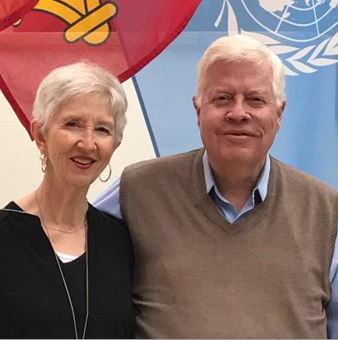Workshop: Freedom of Religion Through Human Rights Education – Donald Holsinger

By Taylor Shaw, 2017 ICLRS Student Fellow
Donald B. Holsinger, PhD, Co-director, Geneva Office for Human Rights Education Kennedy Center for International Studies, spoke on human rights and the need for greater education. Donald started by giving a brief history of human rights. He discussed the work of Eleanor Roosevelt and the impact her influence had on educating others about human rights.
Dr. Holsinger spoke about the difference between human rights education and learning about human rights abuses. He said “Human rights education is the teaching and learning of human rights.” He went on to list certain difficulties human rights education is currently facing. “Human rights education is expensive and difficult and often it’s talked about more than it’s done.”
Dr. Holsinger listed three major ways to teach human rights: Formal education (teaching within the school system), non-formal education (teaching outside of the school system), and informal education (teaching done online and through social media). He discussed how the first two are the most difficult and expensive ways to teach human rights. The Kennedy Center has been focusing on informal education through curriculum they have created and made available for free online and through smart phone applications.